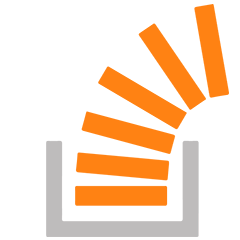About Us
Overleaf is a startup and social enterprise that builds modern, open-source collaborative authoring tools for scientists like Google Docs for Science. We have over eight million registered users from around the world and over 400,000 people use our platform each day. Our primary product is an online, real-time collaborative editor for papers, theses, technical reports and other documents written in the LaTeX markup language.
Overleaf was founded by two mathematicians who were inspired by their own experiences in academia to create a better solution for scientific collaboration and communication. Now we are a team of about fifty with fifteen developers, based mainly in and around the UK and in the US. We were recently recognised as one of the UK's top 100 fastest growing businesses and as the Best SaaS for Nonprofits or Education in the 2020 SaaS Awards Program.
Your New Role
We are looking to hire a hands-on engineering manager who will be responsible for line management of a group of around 5 engineers at different levels, as well as writing code.
As an Engineering Manager and part of the engineering team at Overleaf, you will be helping to make Overleaf the go-to place for scientific writing by both inspiring your engineers to do their best work, and making your own contributions directly to the platform.
As a manager you will:
- Hold regular 1:1s with your engineers
- Be responsible for their career progression and development
- Provide coaching and point them at relevant training when needed
- Advocate for them during planning to ensure they get assigned to the right projects
- Provide constructive feedback and manage performance issues where necessary
- Input into the decision-making process when choosing which projects and features to work on
- Sit on hiring panels
As a member of the engineering team you will:
- Write application code, primarily in JavaScript
- Review pull requests from other engineers
- Take on a tech-lead role for individual projects and features, when appropriate
Key projects on our road map this year include:
- Consolidate our two project history systems we currently have two from our integration with ShareLaTeX in 2017, each with hundreds of TB to be consolidated
- Make our project PDF preview faster and less bandwidth-hungry we have prototypes showing big wins that now need getting ready for production
In the longer term, we are planning projects around improved collaboration features for teams, improvements to our rich text mode to help non-LaTeX users, and more.
Our Tech
Overleaf is based on open-source software, and most of our product code is itself open source. You can find it on GitHub: https://github.com/overleaf/overleaf
We run a mainly Node.js back end using MongoDB, PostgreSQL and Redis. We use a microservices architecture, with about a dozen services. On the front end, we mainly use React.
We're hosted on Google Cloud Platform using Google Kubernetes Engine. We use Docker to manage our development environments. We support continuous delivery and typically deploy at least a few times a day.
How We Work
Overleaf is remote-first all staff work remotely and this is part of our values. We also have an office space in London for those that want to use it, and when the pandemic settles down we'll again get the whole team together in London a few times a year for face-to-face time.
Our core hours for meetings are 2pm5pm UK time;we try to schedule all team meetings during this time, including daily 1015 minute standup calls and biweekly company update calls. We try to keep meetings to a minimum for developers.
We always collect user feedback to inform our work. We have UX professionals on our team, and we run many surveys and user interviews. Our engineers work closely with the product team in product trios (PM, engineer, UX) during both discovery and delivery of new features.
Our development process is based on the Shape Up model, using 6-week delivery cycles and a 2-week cooldown between them. In each cycle, we have multiple delivery tracks, each with its own tech lead. Engineers move between delivery teams each cycle.
We use GitHub pull requests for each feature with code review to share knowledge and best practices. We test thoroughly with automated unit and acceptance tests, supported by continuous integration (CI). We're also fans of linting to minimise bike-shedding.
How We Hire
The stages in our hiring process are typically:
If you have a deadline, please let us know in your application, and we will try to be accommodating.
Benefits
- Remote and flexible working.
- Salary £70k£85k per year depending on experience.
- You would join a small, dedicated and growing team.
- We're substantially (around 80%) open-source, so your work will often be on open source code.
- We're backed by Bethnal Green Ventures (https://bethnalgreenventures.com/) and Digital Science (https://www.digital-science.com/), through which we're part of a wider community of startups in science, health and ed-tech.
- Our London office is shared with several other Digital Science companies, so there are lots of interesting people to meet, and clubs and sports activities outside of work.
- We get everyone together in London for team meetings several times a year for valuable face-to-face time (pandemic permitting).
- Well provide a new Mac, PC or Linux laptop, along with a stipend for other equipment.
- We provide a training budget;many of our developers choose to attend relevant industry conferences or buy training materials.
- We run regular remote hackathons to keep learning and experimenting.
- We run a weekly internal seminar series with short talks from staff about their work or personal projects, new technologies and techniques.
We are an equal opportunity employer and value diversity at our company. We do not discriminate on the basis of race, religion, color, national origin, gender, sexual orientation, age, marital status, veteran status, or disability status.
